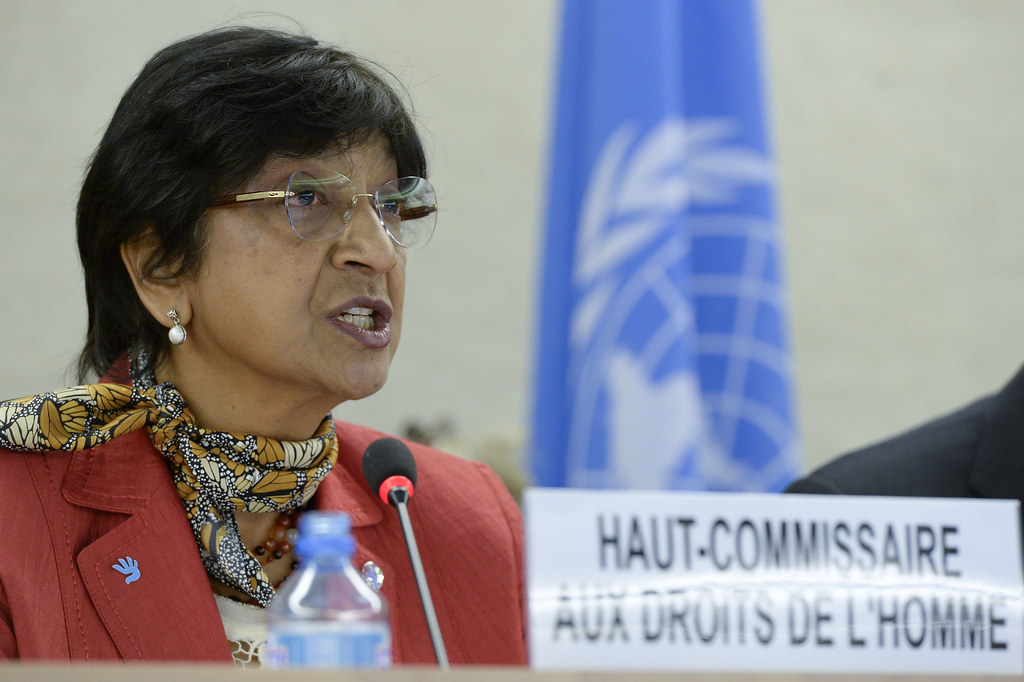IN THE MEDIA
Israel and the UN: How the world’s only Jewish state has been scapegoated
June 17, 2022 | Ahron Shapiro

The Australian – 17 June 2022
Australia stands up for human rights, and the pursuit of human rights demands consistency, and fairness for all. This was the message Australia’s Ambassador to the United Nations in Geneva Amanda Gorely delivered on Tuesday at the opening of the 50th session of the UN Human Rights Council (UNHRC), as she reiterated Australia’s continuing opposition to that body’s recently launched, unprecedented permanent Commission of Inquiry (COI) into Israel.
“Australia agrees that the Human Rights Council brings a disproportionate scrutiny to Israel,” Gorely said, “We do not support the proposition that Israel is the only country that is a permanent item on the HRC agenda, which is why… we retain our fundamental concerns about the nature of the commission of inquiry.”
Australia’s statement dovetailed with a substantively similar communique by the United States, co-signed by 21 other countries including Canada, the United Kingdom and Germany (so similar that some have raised the obvious question as to why Australia didn’t simply sign on ourselves), that went to the heart of why disproportionate focus on Israel discredits the work of the UNHRC.
These are rebukes that the UNHRC should take notice of, from countries that champion human rights.
Naturally, in theory, the UNHRC should be part of any strategy that improves human rights globally. In practice, however, it has been part of the problem, serving as a convenient refuge for countries with some of the worst human rights records to exploit from within and shield themselves from scrutiny.
To achieve this goal, a convenient scapegoat needed to be found, or better yet a lightning rod, to divert the UNHRC’s attention, and consume most of its time and resources, thus keeping scrutiny away from the abusive behaviours of the world’s most immoral autocracies and dictatorships.
That useful scapegoat has been a democracy – the world’s only Jewish state, Israel.
The numbers tell the story: Since the UNHCR’s founding, it has subjected Israel to 99 condemnatory resolutions, by far the most of any country. That’s 19.3% more condemnations than Syria (39), North Korea (15), Iran (12), Eritrea (11), Sudan (1), Venezuela (2) and Russia (3) combined.
The UNHRC has created one commission of inquiry (COI) on North Korea, two apiece for Libya, Myanmar, and Syria, and nine on Israel. Meanwhile, not one has been created into the situation of human rights in China, one of the Council’s current elected members.
Last year, the UNHRC created an unprecedented permanent and ongoing “Independent International Commission of Inquiry on the Occupied Palestinian Territory, including East Jerusalem, and Israel”, funded to the tune of US$4 million a year and staffed by 18 people. In theory, its reports should criticise human rights violations on both sides of the conflict between the Palestinians and Israel, including those by Hamas and the Palestinian Authority. In practice, its first report, officially released this week, mentions Israel 157 times, and Hamas just three.
The UNHRC’s appointment of Navi Pillay to head the inquiry hinted at the anti-Israel claptrap these reports are clearly intended to be. Unsurprisingly, Pillay – a supporter of the Boycott, Divestment and Sanctions (BDS) campaign against Israel – has orchestrated a report that conforms to her own worldview, compiled by authors with a history of one-sided support for the Palestinian narrative.
Hillel Neuer, Executive Director of UN Watch, a Geneva-based NGO that monitors the performance of the UN and its affiliated bodies by the yardstick of the UN Charter, tweeted sarcastically about the report: “Bravo to the UNHRC’s Pillay Commission for ‘ensuring the inclusion of a diverse range of perspectives in its consultations’ by meeting with Palestinian organizations that are dedicated to condemning Israel, as well as Israeli organizations that are dedicated to condemning Israel.’”
Neuer added that the Pillay Report makes 14 references to the infamous Goldstone Report into the 2008 Gaza war, even though Goldstone himself disavowed its key charges, and its chief author was exposed to be Grietje Baars who, shortly after working on the report, served as spokeswoman for the belligerent and violent 2010 Gaza flotilla.
Professor Anne Bayefsky, Director of the Touro Institute on Human Rights and the Holocaust, and President of Human Rights Voices, wrote that citations of this kind appear to have been by design.
“The ‘inquiry’ was designed to identify and then parrot ‘the similarities in the findings’ of decades of prior anti-Israel, grossly biased UN reports, statements and resolutions,” Bayefsky wrote, “And then to turn around and blame Israel for failing to ‘implement’ those noxious findings.”
She added, “Hence, the report’s overriding standard of ‘proof’ that the Jewish state is allegedly a moral affront to humankind is this: the UN said so.”
The UNHRC’s open-ended COI is expected to produce two reports a year. These reports will neither advance the pursuit of universal human rights, nor bring peace any closer. As Ambassador Gorely put so eloquently on Tuesday, “Australia’s guiding principle will be advancing the cause for peace. Viewing any conflict from one perspective will not achieve this goal.”
The Albanese Government’s decision to continue to oppose this politicised boondoggle won’t singlehandedly bring about the reforms needed to make the UNHRC an effective and credible body. However, it adds the weight of Australian diplomacy to those of others in the international community and, together, this can make a difference.
Ahron Shapiro is a senior policy analyst at the Australia/Israel & Jewish Affairs Council (AIJAC).
Tags: Australia, Israel, UNHRC, United Nations





